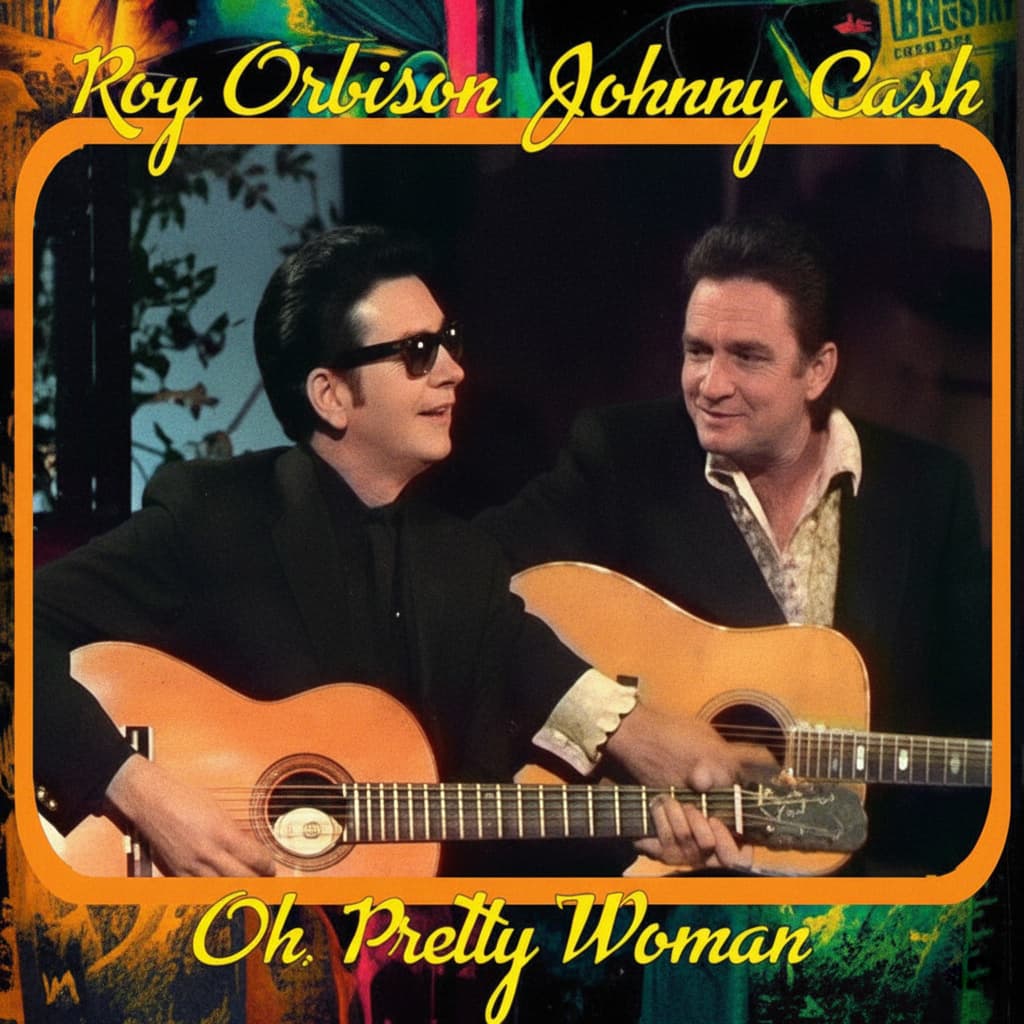
A fusion of two American music titans, performing a song that remains an anthem of hopeful infatuation.
There are certain moments in television history, especially those captured on the small screen during the late sixties, that stand as monuments to a bygone era of musical camaraderie and genuine artistry. For those of us who remember gathering around the console set, waiting for the weekend’s entertainment, the sight of Roy Orbison stepping onto the stage of The Johnny Cash Show was always a special occasion. But when the two legends—Orbison, the master of the melodramatic ballad, and Johnny Cash, The Man in Black, the voice of the common man—joined forces, as they did for a live rendition of “Oh, Pretty Woman” in 1969, it was nothing short of magic, a true meeting of soulful minds.
While this particular performance was a wonderful highlight of the burgeoning prime-time country music phenomenon that The Johnny Cash Show became, to fully grasp its significance, we must first look back to the song’s thunderous debut. “Oh, Pretty Woman” (or “Pretty Woman” as it is sometimes shortened) was originally released by Roy Orbison in August 1964 and became a global phenomenon almost instantly. It was the peak of his commercial power, a final, magnificent crest before the seismic shifts of the late sixties took full hold of the airwaves. Upon its release, the single soared to Number 1 on the US Billboard Hot 100, where it stayed for three weeks, and similarly topped the UK Singles Chart, marking a stunning achievement right in the midst of the British Invasion. It was certified gold within months, ultimately becoming one of his signature, best-selling records.
The story behind the song is one of those lovely, domestic moments that become legend. It was co-written by Orbison and his collaborator Bill Dees at Orbison’s home. The inspiration, so often cited by those of us who recall the details, was his first wife, Claudette. She interrupted their session to announce she was going out, prompting Orbison to ask if she needed any money. Dees, with a perfectly placed quip, interjected, “A pretty woman never needs any money.” That simple line sparked an immediate, furious creative session. By the time Claudette returned, the song—with its unforgettable, driving guitar riff and that iconic, desperate “Mercy!” growl—was essentially complete. It’s a song born of simple, sudden infatuation, the universally relatable experience of seeing someone beautiful walk by and having your heart momentarily suspended by hopeful longing.
By 1969, the landscape had changed, and Orbison’s original run of mega-hits was somewhat receding, yet his presence on Cash‘s show in Nashville was a powerful assertion of his enduring stature. The live duet with Johnny Cash for the ABC network audience felt less like a chart-topping comeback vehicle and more like a warm, respectful acknowledgment from one giant of American music to another. Watching them share the stage, you felt the weight of their shared history and their mutual, deep-seated appreciation for authentic American music, be it rock and roll, country, or the soaring, dramatic pop that Orbison perfected.
What makes that 1969 rendition so evocative for us older listeners is not just the shared vocals—Cash‘s rumbling baritone grounding Orbison‘s theatrical operatic range—but the sheer nostalgia of the setting. It’s a snapshot of a moment when these true artists, despite their wildly different styles, could simply stand side-by-side, united by a brilliant, enduring song. It reminds us that at the heart of all great music is not genre, but emotion—the simple, heartfelt, utterly universal feeling of hope. The performance is a warm embrace of an unforgettable song, delivered by two men who defined the soundtrack of our lives. It’s a treasured memory, etched not in vinyl, but in the communal experience of watching those black and white, or perhaps early color, images flicker across the screen, a moment of pure, unadulterated musical pleasure.